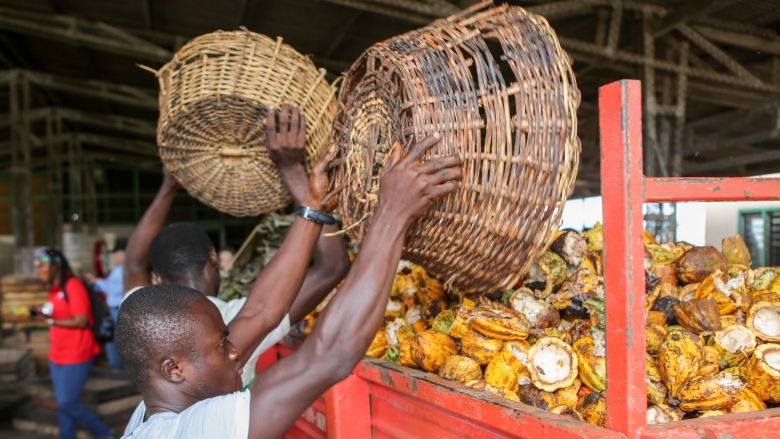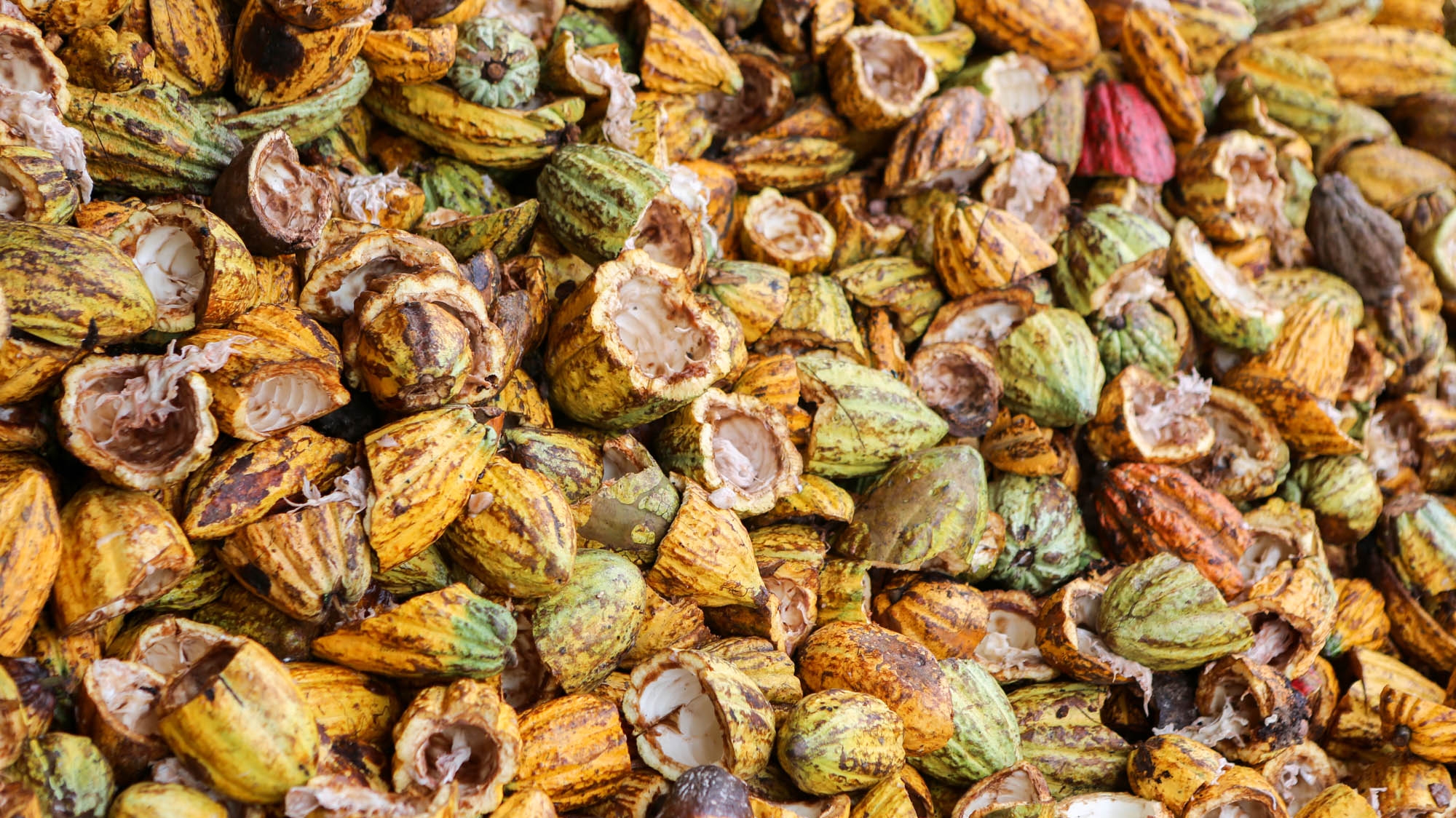Forest loss is perhaps the last thing families across the world think about when they give boxes of chocolate during the holiday season. But cocoa – the essential ingredient in chocolate and other consumer products – is in fact a leading driver of deforestation in cocoa-producing countries.
Although cocoa production continues to expand in Asia, Central and South America, two-thirds of the world’s cocoa supply comes from Côte d'Ivoire and Ghana alone. Between 1988 and 2007, West Africa lost 2.3 million hectares of forest to cocoa cultivation, which has caused serious soil degradation, water insecurity and crop failures. Small farmers produce up to 90% of cocoa in these two countries. Yet, they face challenges of decreasing productivity, degraded land and old, pest-infected cocoa trees. All these factors undermine their livelihoods – and their ability to adopt new, forest-smart practices.
These stark realities in the cocoa sector are precisely why Côte d'Ivoire and Ghana, along with more than 20 leading chocolate companies, came together last month to launch the groundbreaking Frameworks for Action for sustainable cocoa at the UN Climate Change Conference in Bonn. These frameworks lay out how Côte d'Ivoire and Ghana will work with the private sector and other stakeholders to accelerate investments in long-term sustainable production of cocoa, with an emphasis on “growing more cocoa on less land.”
The World Bank, together with the World Cocoa Foundation and Climate Focus, has released a new report to help guide the work of these governments and companies to operationalize the Frameworks for Action at the level of cocoa farmers. The report, entitled “Forest- and Climate -Smart Cocoa in Côte d'Ivoire and Ghana: Aligning Stakeholders to Support Smallholders in Deforestation-Free Cocoa”, identifies eight priority actions that these governments and the private sector can take to shift cocoa production practices in West Africa toward sustainable management, and eliminate deforestation from the cocoa supply chain.
“To accelerate the transition toward climate-smart cocoa in Côte d’Ivoire and Ghana, efforts need to be supported by a common vision between governments, companies, communities and CSOs,” says Charlotte Streck, Director of Climate Focus. She adds, “This report aims to inform policy makers, development partners, supply-chain companies, and responsible investors about the most pressing actions needed to help small cocoa farmers to achieve sustainable livelihoods, protect and restore forests, and mitigate and adapt to climate change.”


